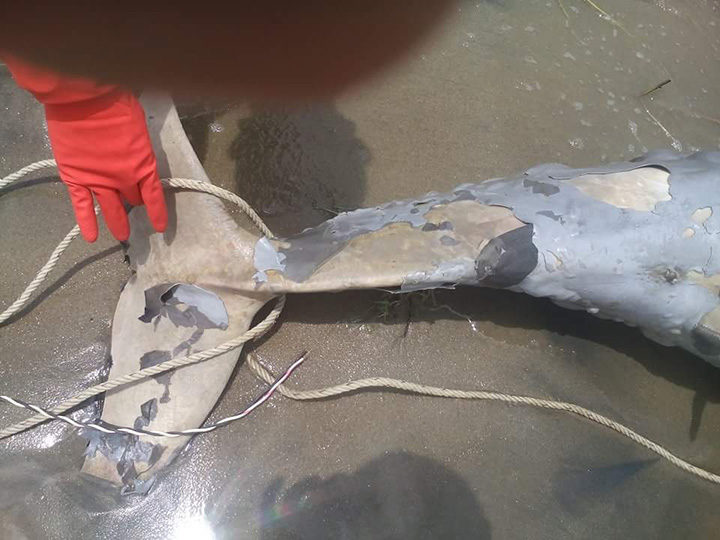Ten species of marine animals that can primarily be found off the Rakhine coast are now facing extinction, according to a new report from the Department of Fisheries. The affected species include sharks, dolphins, and whales living near Sittwe, Manaung, Gwa, Kyaukphyu, and Thandwe.
Dr. Maung Maung Kyi, chairman of the Rakhine Coastal Region Conservation Association (RCA) told Eleven that fishermen in the region often catch their prey through blast fishing, cyanide fishing, or electrofishing, all of which can be detrimental to the local marine environment as well as harming rare fish species.
In blast fishing, explosives are used to stun or kill schools of fish, allowing fishermen to quickly capture large amounts of fish in a short period of time. With cyanide fishing, the poisonous substance is sprayed or squirted in a particular area of the water; the cyanide doesn’t kill the fish, instead stunning them long enough for an easy capture. Electrofishing involves the release of an electric current into the water in order to stun or kill fish; in Myanmar, fishermen often drop car batteries into the water to generate the current.
In recent months, several dolphins have washed ashore, many of them having died due to electrocution. In neighboring Thailand, a male dugong was found dead last November — allegedly the last remaining dugong in the Gulf of Thailand.
And because local fishermen don’t really care about the scope of the damage that is inflicted through these methods of fishing, oftentimes animals that they don’t necessarily intend to harm are also injured or killed.
Despite local efforts to fine and jail anyone who is found guilty of fishing via such illegal methods, the respective departments don’t have nearly enough vessels or equipment to regularly patrol the waters. Additionally, and perhaps more unfortunately, people also don’t seem to care enough about the damage that is being done.
Dr. Nyunt Wai, Head of Rakhine State’s Department of Fisheries explained: “We’ve made announcements and established rules, but no one follows them. They release poison, they shock the water. We have dugongs and sharks… and we teach people on how to help preserve them; we tell them that if they catch one [of these fish], they should release it back into the water. However, very few people actually listen.”





Reader Interactions